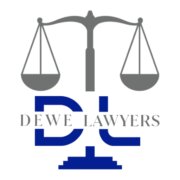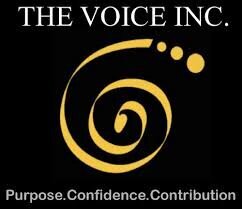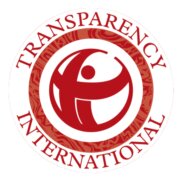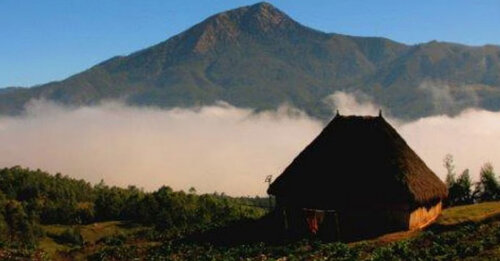Best Communications & Media Law Lawyers in Papua New Guinea
Share your needs with us, get contacted by law firms.
Free. Takes 2 min.
Or refine your search by selecting a city:
List of the best lawyers in Papua New Guinea
About Communications & Media Law in Papua New Guinea
Communications & Media Law in Papua New Guinea encompasses a range of legal areas, including broadcasting, telecommunications, advertising, and media rights. Given the country's evolving media landscape, these laws play a crucial role in regulating how information is disseminated and ensuring free speech while balancing ethical reporting and protecting public interest. The National Information and Communication Technology Authority (NICTA) is a significant regulatory body overseeing these areas, ensuring compliance with statutory requirements and international agreements.
Why You May Need a Lawyer
Individuals and businesses may require legal assistance in Communications & Media Law for various reasons. Common situations include disputes over intellectual property rights, defamation cases, regulatory compliance issues with NICTA, or negotiating media contracts. Moreover, media entities might face challenges related to content licensing, censorship, or broadcasting rights, necessitating guidance from experienced legal professionals to navigate these complex legal terrains effectively.
Local Laws Overview
Papua New Guinea's legal framework for Communications & Media Law is aimed at managing the rapid technological growth and its implications on society. Key aspects include:
- Telecommunications Act: Governs the licensing, regulation, and operation of telecommunication services, ensuring that services are accessible and affordable.
- Cybercrime Code Act: Addresses illegal activities conducted electronically, including hacking, data breaches, and online fraud.
- National Broadcasting Corporation Act: Regulates public broadcasting services, focusing on the delivery of unbiased and culturally respectful content.
- Media Council Code of Ethics: Provides guidelines for media practitioners to ensure ethical reporting and accountability.
Frequently Asked Questions
What constitutes defamation in Papua New Guinea?
Defamation involves making false statements that damage an individual's reputation. In PNG, both libel (written) and slander (spoken) are considered defamatory under the law if they cannot be proven true.
How can I resolve a dispute with my telecommunications provider?
Initially, attempt to resolve the issue directly with the provider. If unsatisfied, you can file a complaint with NICTA, which will facilitate mediation or adjudication.
Are there any restrictions on the content that can be broadcasted on TV and radio?
Yes, content restrictions are often in place to ensure broadcasts are suitable for audiences, respect cultural norms, and do not incite violence or discrimination.
How does PNG regulate online data privacy?
Data privacy is mainly regulated under the Cybercrime Code Act, focusing on protecting personal information from unauthorized access, use, or disclosure online.
What are the penalties for breaching broadcasting regulations?
Penalties may include fines, suspension of licenses, or revocation of broadcasting rights, depending on the severity of the violation.
Is censorship common in Papua New Guinea?
While censorship is not widespread, the government enforces rules to prevent the dissemination of harmful or illegal content, balancing free expression with public interest.
How are press rights protected in Papua New Guinea?
The Constitution secures freedom of speech and press, yet these rights are subject to limitations aimed at ensuring national security, public order, and morality.
What should I do if I receive a cease-and-desist letter regarding intellectual property?
Consult a lawyer to assess the claim and determine the appropriate response, whether it's compliance, negotiation, or litigation.
Are there specific regulations for digital advertising?
While general advertising laws apply, there are additional rules concerning digital ads' misleading claims and adherence to data protection standards.
Who regulates the telecommunications industry?
The National Information and Communication Technology Authority (NICTA) is responsible for regulating telecommunications, including service provision and compliance monitoring.
Additional Resources
For additional assistance, consider reaching out to the following resources:
- The National Information and Communication Technology Authority (NICTA): Oversees telecommunications and broadcasting sectors.
- Media Council of Papua New Guinea: Provides guidelines and support for media practitioners.
- Papua New Guinea Law Society: Can refer you to qualified lawyers specializing in Communications & Media Law.
- Consumer Affairs Council: Offers support and advice on consumer rights related to telecommunications services.
Next Steps
If you require legal advice or representation in Communications & Media Law, consider the following steps:
- Identify the specific legal issue you're facing to clarify your needs.
- Consult the Papua New Guinea Law Society for referrals to experienced Communications & Media Law lawyers.
- Prepare relevant documentation and evidence to provide comprehensive details of your situation to your legal counsel.
- Schedule consultations with potential lawyers to assess their expertise and compatibility with your case.
- Engage a lawyer who understands local laws and can guide you through the legal process effectively.
Lawzana helps you find the best lawyers and law firms in Papua New Guinea through a curated and pre-screened list of qualified legal professionals. Our platform offers rankings and detailed profiles of attorneys and law firms, allowing you to compare based on practice areas, including Communications & Media Law, experience, and client feedback.
Each profile includes a description of the firm's areas of practice, client reviews, team members and partners, year of establishment, spoken languages, office locations, contact information, social media presence, and any published articles or resources. Most firms on our platform speak English and are experienced in both local and international legal matters.
Get a quote from top-rated law firms in Papua New Guinea — quickly, securely, and without unnecessary hassle.
Disclaimer:
The information provided on this page is for general informational purposes only and does not constitute legal advice. While we strive to ensure the accuracy and relevance of the content, legal information may change over time, and interpretations of the law can vary. You should always consult with a qualified legal professional for advice specific to your situation.
We disclaim all liability for actions taken or not taken based on the content of this page. If you believe any information is incorrect or outdated, please contact us, and we will review and update it where appropriate.
Browse communications & media law law firms by city in Papua New Guinea
Refine your search by selecting a city.















